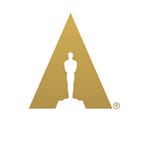Five Questions with Alfonso Cuarón
Our fans asked, the Oscar-winning filmmaker answered
What has changed about filming in Mexico since the last time you did?
-mar.rosa | Instagram
So much has changed since the last time I filmed in Mexico. Now, there is a big and vibrant film industry. When I did Y Tu Mamá También in 1990, going into 2000, the industry was just starting to recover and starting to have a decent amount of film production, which was complemented by a decent amount of commercials.
Now, there is an immense amount of films shot in Mexico every year—maybe 150 films every year—and that’s not including commercials and even more television series, both from Mexican filmmakers and from others around the world.
I shot Y Tu Mamá También in 1999/2000 and ROMA in 2016/2017, and those two time periods are incredibly different and contrast Mexico City from when I was growing up and trying to begin my career as a filmmaker. At that time, the industry had almost disappeared.
I’m Mexican and my biggest dream is to be a filmmaker. What advice would you give to me?
-vaniacosyleon | Instagram
I’m not very good at giving advice, but something that I feel strongly about is that—and this may sound like a cliché —it’s so important to remain true to yourself. And if you’re a Mexican whose dream is to become a filmmaker, keep your roots very well cemented in your culture.
The more specific you are, the more universal you will be able to be.
¿Cuál fue la película que te inspiró a ser director de cine? / What movie inspired you to become a filmmaker?
-fotoenrique|Instagram
I wanted to make films ever since I can remember. I have memories from when I was a child, when I was playing war or soldiers or make-believe games with my cousins or siblings: my mind was always in the frame of a film. Most of them were more in the line of adventure films and that’s when I decided this is what I wanted to do.
I had a very blurry concept of what a director did, but I knew that’s what I wanted to do.
When I was eight years old, I saw Bicycle Thieves by Vittorio De Sica, that opened the flood gates into discovering that there were so many other ways to make films. Around the same time, I saw a documentary about the making of Butch Cassidy and the Sundance Kid and, at that time, it was very rare to see any sort of behind the scenes. I was fascinated by all of the technology behind making a film, and you would see that at the center of all of it was George Roy Hill. That same year, there was a documentary about the making of some Sergio Leone film where I heard him speak, and I think it was the combination of all of those films that made me say that’s what I wanted to do with my life.
How did you catch your big break in the industry & get noticed?
-Devan Vasquez | Oscars Movie Club
I was very young and started going up the ranks of the film industry. In that sense, I consider myself a blue-collar worker of the film industry. I worked on several productions, not just features films, but also documentaries, commercials and promos. I worked as a production assistant, I did many films as a boom operator (around 8-12), I was a camera assistant, I did sound for short films and TV films, I edited documentaries. And then, slowly, I built a career as an assistant director.
Once I was an assistant director, I started having a name and was able to meet actors and producers on every job. One of these actors, Pedro Armendáriz, recommended me to his sister Carmen Armendáriz, who was producing this anthology show called La Hora Marcada, so I started working on that show, writing, directing, editing and doing the cinematography for some of the episodes.
It was the same show where Guillermo del Toro started.
Slowly, from that, I started getting a certain name and certain recognition in a small circle, but it was good enough to put together my first film.
Is there an element of your films that crosses over into every project?
-Zach Osborne |Oscars Movie Club
It’s hard to tell because I don’t really analyze my own films and I don’t really ever have an awareness of my own work in terms of how I’m thinking about a new film.
The element that is there in every project is myself.
There are thematic preoccupations and concerns that I want to convey in specific periods of my life. I can’t think of anything more essential than that because themes are consequential and themes are transient, but there is an essence in all of them, and that is up to the viewer to define which elements go from one film to the other.
Recently, with the release of ROMA, several people have mentioned to me that there are elements in common in many of my films and I was very happy to hear it because I was truly not aware of them. From imagery of birth and having resolutions of my films in water, these are things I had not thought about, but it makes sense as those elements carry through from film to film.
For me, making a film is something very instinctive and I don’t intellectualize it very much.
For more filmmaker Q&As, follow us on Instagram and join Oscars Movie Club.
And take a look at Alfonso Cuarón’s in-depth interview for the Academy Foundation’s Oral History Project.
